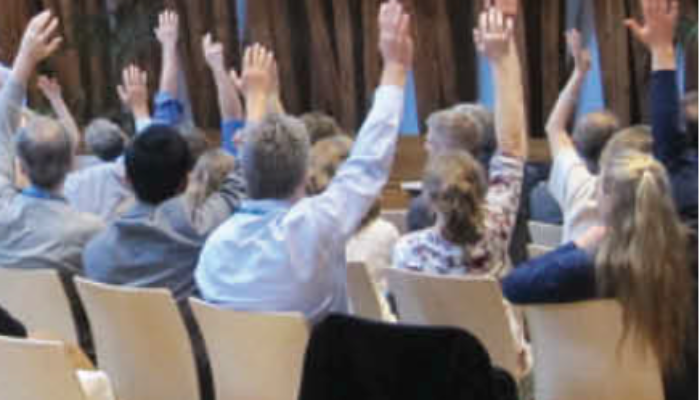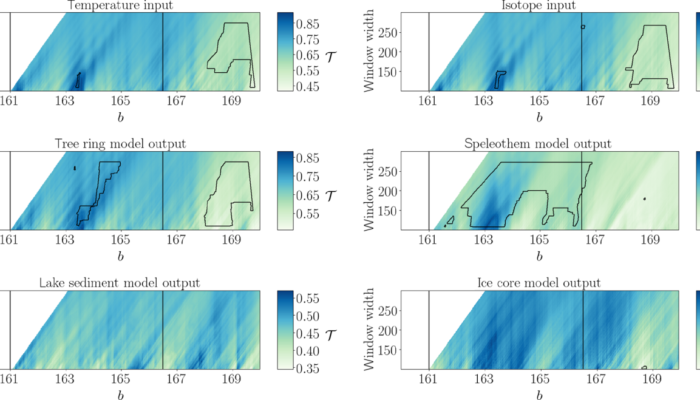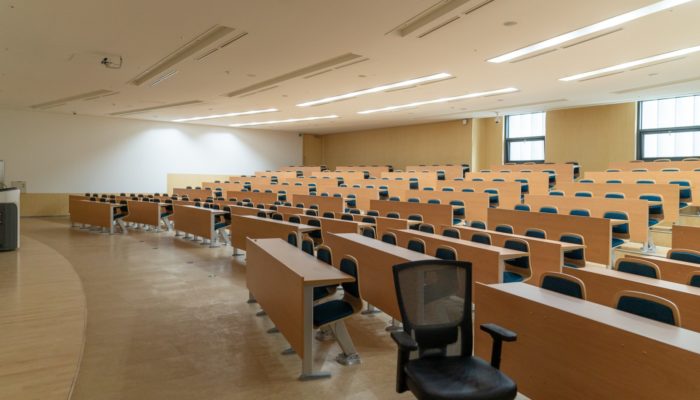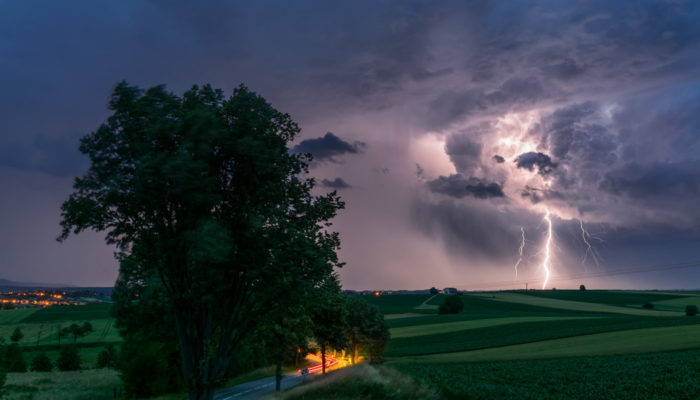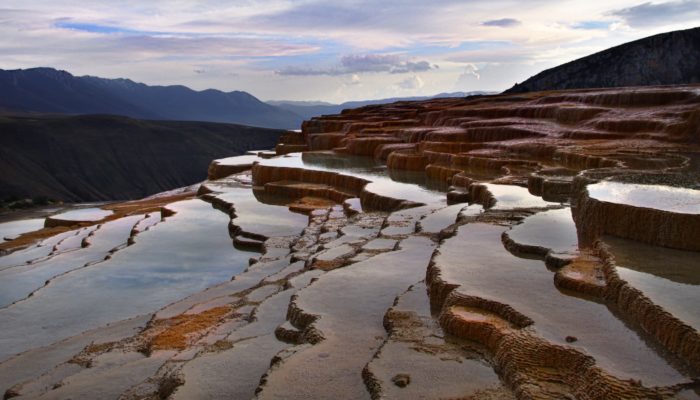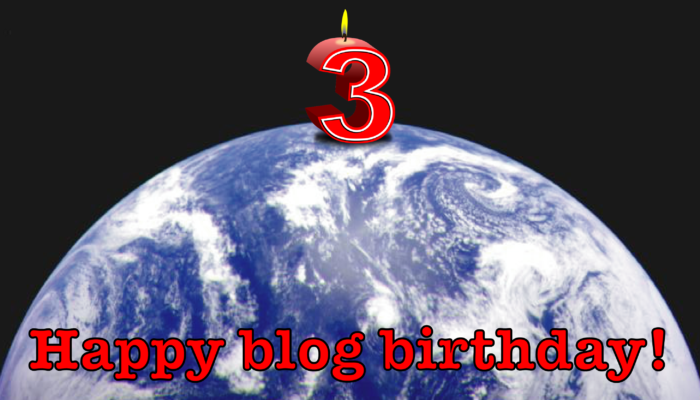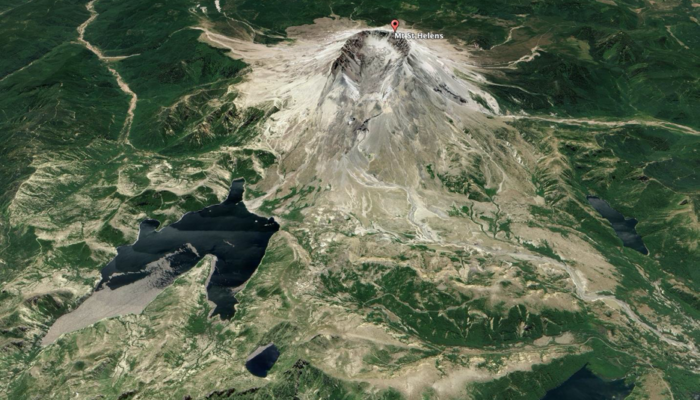At the EGU 2020 Sharing Geoscience Online (SGO) week, we had a chat room session dedicated to discuss progress and way forward on the 23 Unsolved Problems in Hydrology (UPH). As many of you, we experienced this exciting and fast-typing moment of discussing in-depth scientific issues during a short-duration, text-only chat. Many ideas were typed and some of them are shared with you in this post. Mo ...[Read More]
If you didn't find what you was looking for try searching again.
Geology for Global Development
Geoethics – from an ethics of exhaustion to one of abundance
As this year’s pandemic spreads through Brazil, our own Bárbara Zambelli notices a positive shift in the natural environment. In this article, she wonders, what if we shift from an ethics of exhaustion, to one of abundance? This, she argues, is what geoethics is about. [Editor’s note: This post reflects Bárbara’s personal opinions. These opinions may not reflect official policy positions of Geolog ...[Read More]
Nonlinear Processes in Geosciences
NPG Paper of the Month: “Detecting dynamical anomalies in time series from different palaeoclimate proxy archives using windowed recurrence network analysis”
This month the NPG Paper of the Month award is achieved by Jaqueline Lekscha and Reik Donner for their paper “Detecting dynamical anomalies in time series from different palaeoclimate proxy archives using windowed recurrence network analysis” (https://npg.copernicus.org/articles/27/261/2020/). Jaqueline Lekscha did her PhD in physics at the Potsdam Institute for Climate Impact Research and Humbold ...[Read More]
WaterUnderground
Calling on hydrologists to help each other with emergency remote teaching
By Tom Gleeson, Adam Ward, Anne Jefferson, and Skuyler Herzog Amidst the COVID-19 pandemic, many of us are in the same situation: all of a sudden ‘pivoting’ to online teaching, which is probably better called ‘emergency remote teaching’ since few of us have the background, training, and resources to purposefully develop online courses. Fortunately, this response has also catalyzed the open sharing ...[Read More]
GeoLog
Geosciences Column: Thunderstorm asthma, the unexpected impact of lightning storms on pollen allergies.
In October 2015 a series of massive thunderstorms rolled across the Eastern Mediterranean. In the hours and days that followed many people living along the Israeli coast had to go to their nearest medical centre because they were experiencing respiratory problems, which appeared very similar to asthma. But what could have caused these breathing problems? Well in research recently published in Natu ...[Read More]
Cryospheric Sciences
Careers outside of academia
You’ve just finished your PhD or postdoc… now what? Perhaps you’re thinking of a non-academic career, but don’t know where to start, or which skills you need? Up to 70% of scientists move into non-academic careers after graduation (The Royal Society, 2010). But finding useful information and advice is hard. In today’s blog, we summarise the EGU Webinar ‘Careers outside of academia’ which took plac ...[Read More]
Geodynamics
The Sassy Scientist – Bra-Burning Bingo
As a first rate scientist, Kev makes a keen observation about the lack of diversity in the Augustus Love Medal nominations, but is struggling to come to a conclusion to the question: Why is there a lack of nominations for established female scientists for the Augustus Love Medal of the EGU Geodynamics Division? Dear Kev, I’m no Sherlock, but the elementary answer is: not enough EGU members n ...[Read More]
Geodynamics
Happy blog birthday!
This week, the EGU Blog Team is authorised by me to buy itself a cake with 3 little candles on top to celebrate the fact that we have been blogging about geodynamics for 3 years! Hooray! We have had a particularly successful year, so let’s have a look at what happened. What did we do? At the start of this blog year, we reorganised how the blog team functions to relieve a bit of the pressure ...[Read More]
Natural Hazards
Mount Saint Helens 40 years later – May 18, 1980: for everything to stay the same, everything must change
Vancouver, Vancouver, this is it! Just a few words radioed by volcanologist David ‘Dave’ Johnston on May 18, 1980, to USGS headquarter in Vancouver, Washington State. It was 8:32 a.m., and a few hours later he lost his life during the (in)famous Mount Saint Helens eruption. That day, exactly forty years ago, the eruption of Mount St. Helen upset the world. It all started with a collapse on the nor ...[Read More]
Geochemistry, Mineralogy, Petrology & Volcanology
#MINERALMONDAY: Zdenĕkite, way too pretty to mine
One of the saddest things for mineralogists is to see beautiful minerals crushed to extract their valuable contents, but often, without mining, we don’t get to see these minerals in the first place. Mineral hunters often scrounge around in the big piles of waste rock from mines, because the machines used for smashing up rock do a much better job of exposing minerals than a geological hammer ...[Read More]

